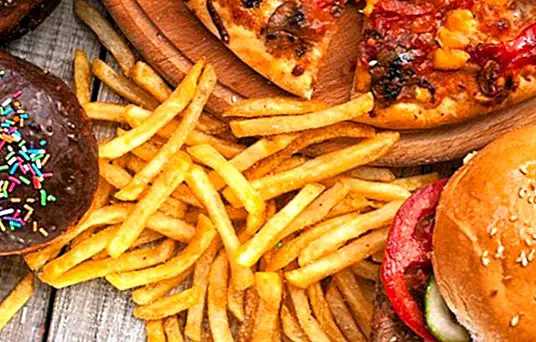The nocturnal diner syndrome: when you wake up to eat every night
Considered as one of the causes of overweight, obesity and other related disorders such as diabetes, the so-called nocturnal diner syndrome (Night eating syndrome, NES, is an eating disorder that consists of the person developing a pattern of fixed behavior, through which he consumes a large number of calories after having dinner, especially during the early hours of the morning.
In severe cases the person suffering from this syndrome can get up to 50% of all the calories that should be consumed throughout the day. It is estimated that about 1.5% of the population suffers, and of these 40% of people who suffer from it are obese.

In addition, if we take into account not only this issue, but the food is consumed at night (when physical activity is practically nil), it is evident that it is one of the most dangerous causes not only of weight gain, but also of increased risk of suffering from other related diseases, such as diabetes.
Symptoms of nocturnal eater syndrome
This syndrome was first described by Dr. Albert Stunkard in 1959, when he first described the symptoms associated with this syndrome.
In this sense, there are several symptoms that can help when identifying the nocturnal diner, and if above all it suffers from this syndrome or not. For example, it is common Compulsive eating especially after the Dinner.
In fact, the foods that are eaten after dinner present a high content in carbohydrates, among which we can mention sweets and pastries, bread, rice and pasta. This can influence the quality of sleep, so that there are difficulties in falling asleep, with frequent awakenings at night.

Since they tend to get up repeatedly over the night, it is a behavior that can end up causing insomnia, since the circadian rhythms are modified (the 'biological clock' of our body), which are so related to the sleep pattern, with the hunger-satiety mechanisms and with our mood.
It is common that these people do not eat anything or almost nothing at breakfast, a habit that also extends not only to the first meal of the day but also throughout the morning.
And finally, the mood is usually elevated throughout the morning, but it ends up decreasing as the day goes by.
What are your causes?
Researchers have found and described the existence of certain causes that can influence or cause the onset of this syndrome. While there is a certain genetic predisposition, environmental and sociocultural factors have been identified.
However, one of the clearest causes is the presence of night stress, since in these people at night they present a high presence of cortisol, the stress hormone.

Treatment of nocturnal eater syndrome
The treatment must be carried out by a nutritionist and by a psychologist. Both usually ask the patient to record the food they eat at night, and especially what are the feelings and feelings that are present at this time.
In this sense, the psychologist provides the person with useful tools to learn to face their problem, changing their own attitudes and habits in the face of what they eat.
While the nutritionist will provide controlled dietary guidelines, helping you to follow a diet with at least five meals a day. This article is published for informational purposes only. It can not and should not replace the consultation with a Physician. We advise you to consult your Trusted Doctor. ThemesEating Disorders



